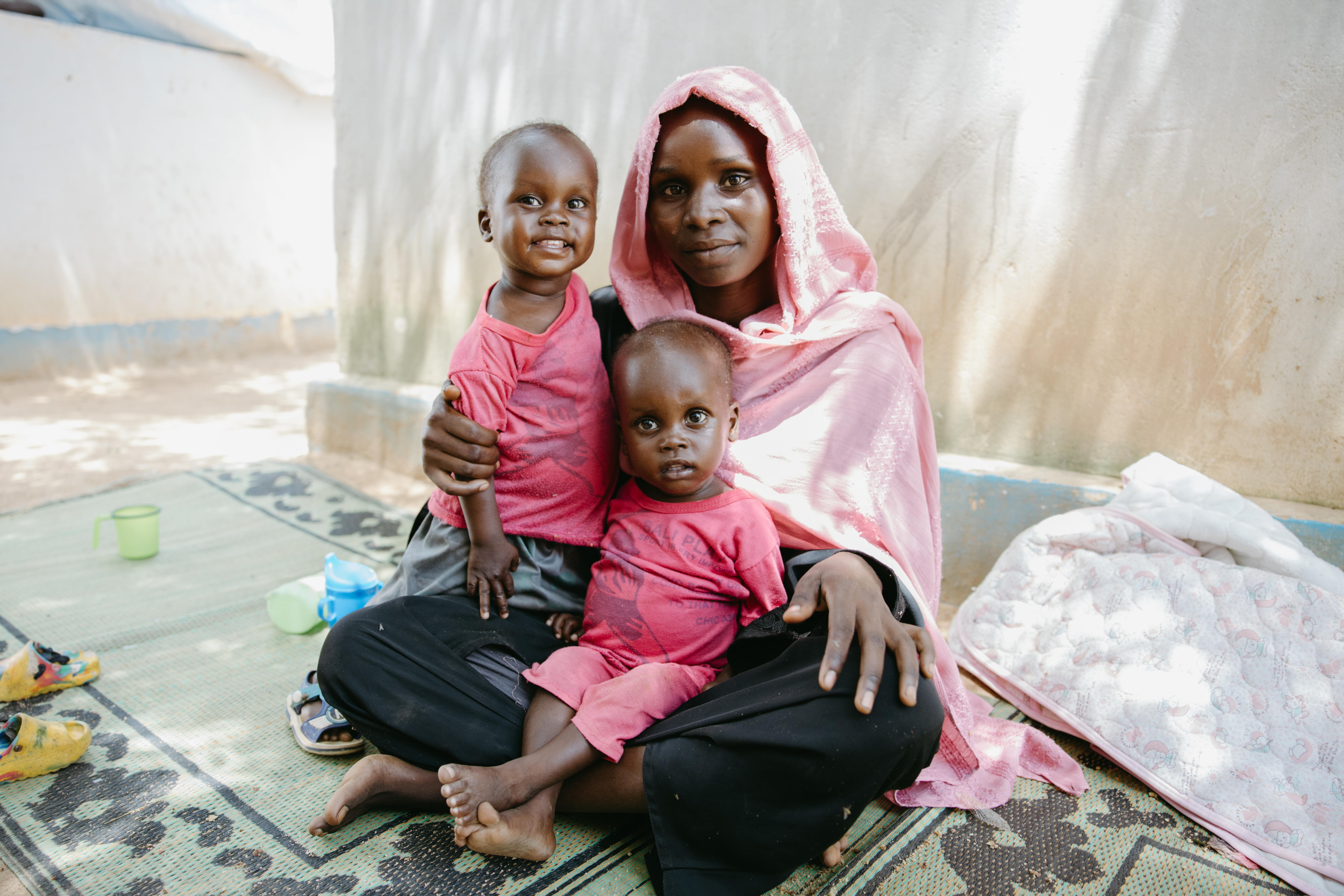Tahani is on her own. She has no idea where her husband is. Forced to flee deadly violence, she carried her 21-month-old twins, Adam and Adeeb across the Sudan border. At a nutrition clinic in Chad they were able to receive life-saving support, and the twins survived.
This is a miracle story!
Tahani, age 20 and the twins are among many refugees at a nutrition center our team partner with in Farchana, Chad, a bumpy 90-minute drive away from the border crossing at Adré. We first met Tahani amid tragic circumstances, her babies were in a life and death fight against severe malnutrition. No one was sure they'd make it. Tahani left El Geneina in Sudan last June (2023) because of war. Her memories are awful.
“When I started coming, I faced shooting and people killing people on the road. Houses and villages were on fire,” says Tahani. She walked to Adré with the twins. “I carried one and a relative carried the other one."
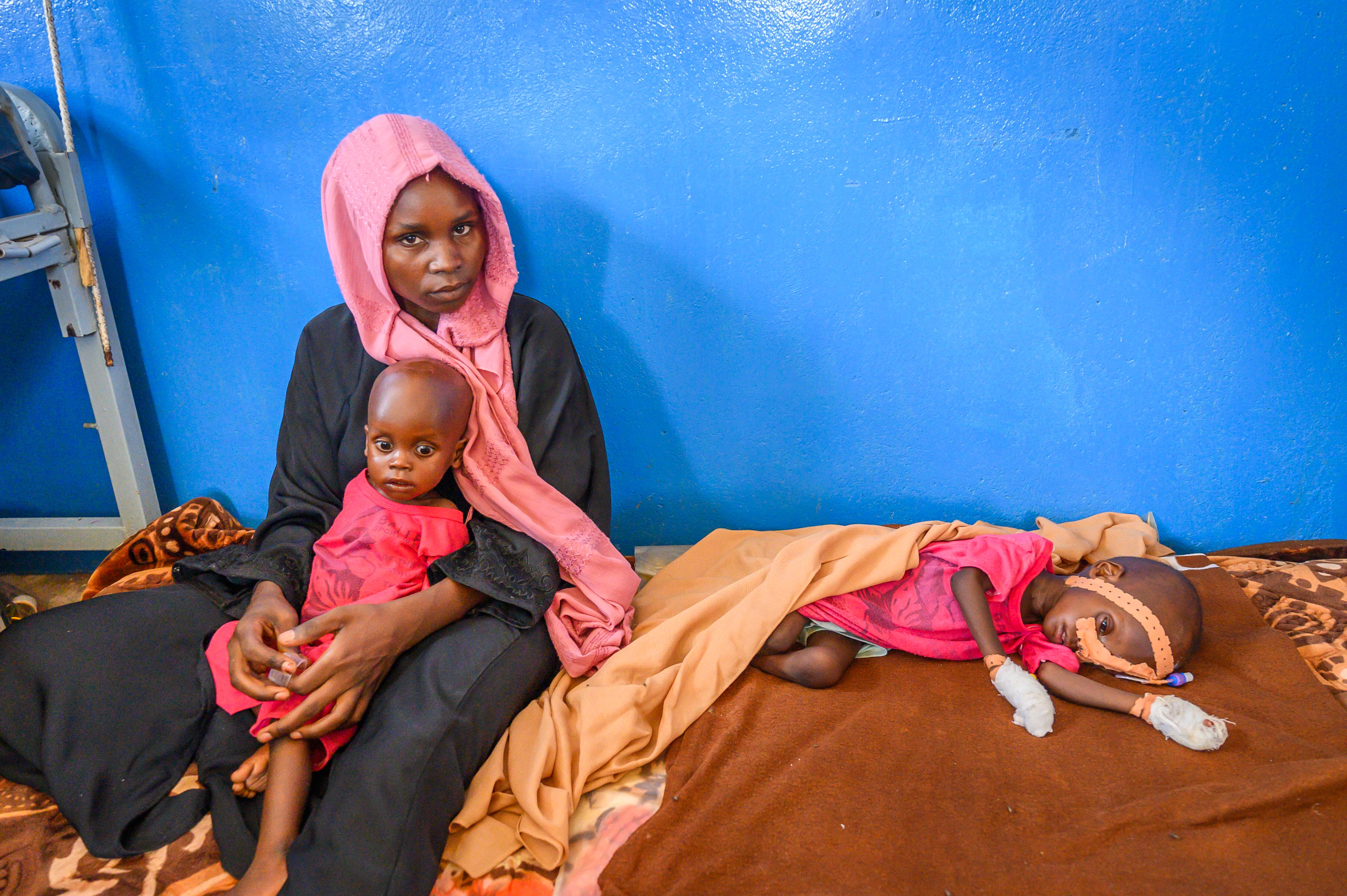
Tahani 20, sits with her twin babies, Adeem and Adam. This health centre is overrun and under resourced, yet there is hope because of the incredible staff that give their all to help children survive and recover.
Dr. Albachir, the physician who runs the nutrition center, explained how they are treating the twins with a fortified milk called F-75. “For Adam, (the problem) is severe malnutrition,” he says. “With diarrhea” Adam’s weight dropped overnight. This morning, he only weighs 13 pounds. “I am worried, but we can’t control it,” he says. “In the severe cases, the patient’s weight doesn’t increase for three or four days.”
He says the F-75 will help Adam’s kidneys and liver begin to function properly again. The doctor works with five nurses, serving a population of thousands. “It is very difficult,” he says. “You need energy. At any time, they call me I come. Seven days a week, 24 hours a day. Daytime. Night time. They call me, and I come.” He comes for the children. “They could die at any moment,” he says.
Adeeb cries weakly in his mother’s arms. A fly lands on Adam’s face. His eyes are open. He doesn’t brush it away. The babies were sick last June but are now severely malnourished. “I need help. I’m most worried about Adam.” Adam mewls in her arms. “He refuses to eat. I didn’t have milk to breastfeed them.”
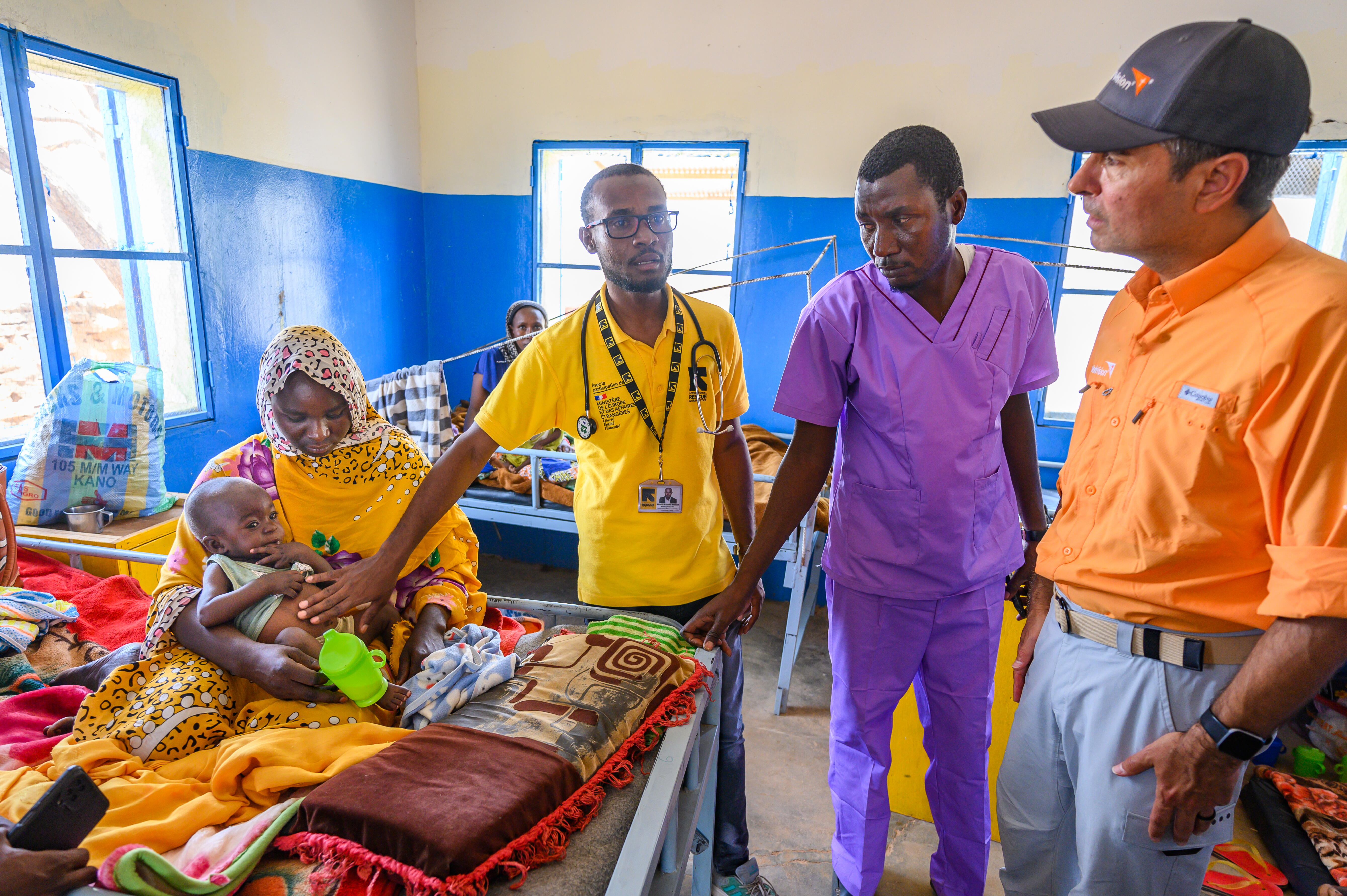
Dr. Albachir Mahamat Albachir (yellow shirt), the head of the nutrition and rehabilitation center run by the International Rescue Committee in Farchana, Chad. World Vision supports this centre and refers sick Sudanese refugee children here. They see between 150 and 200 people per day. There were 40 new malnourished children on this particular visit.
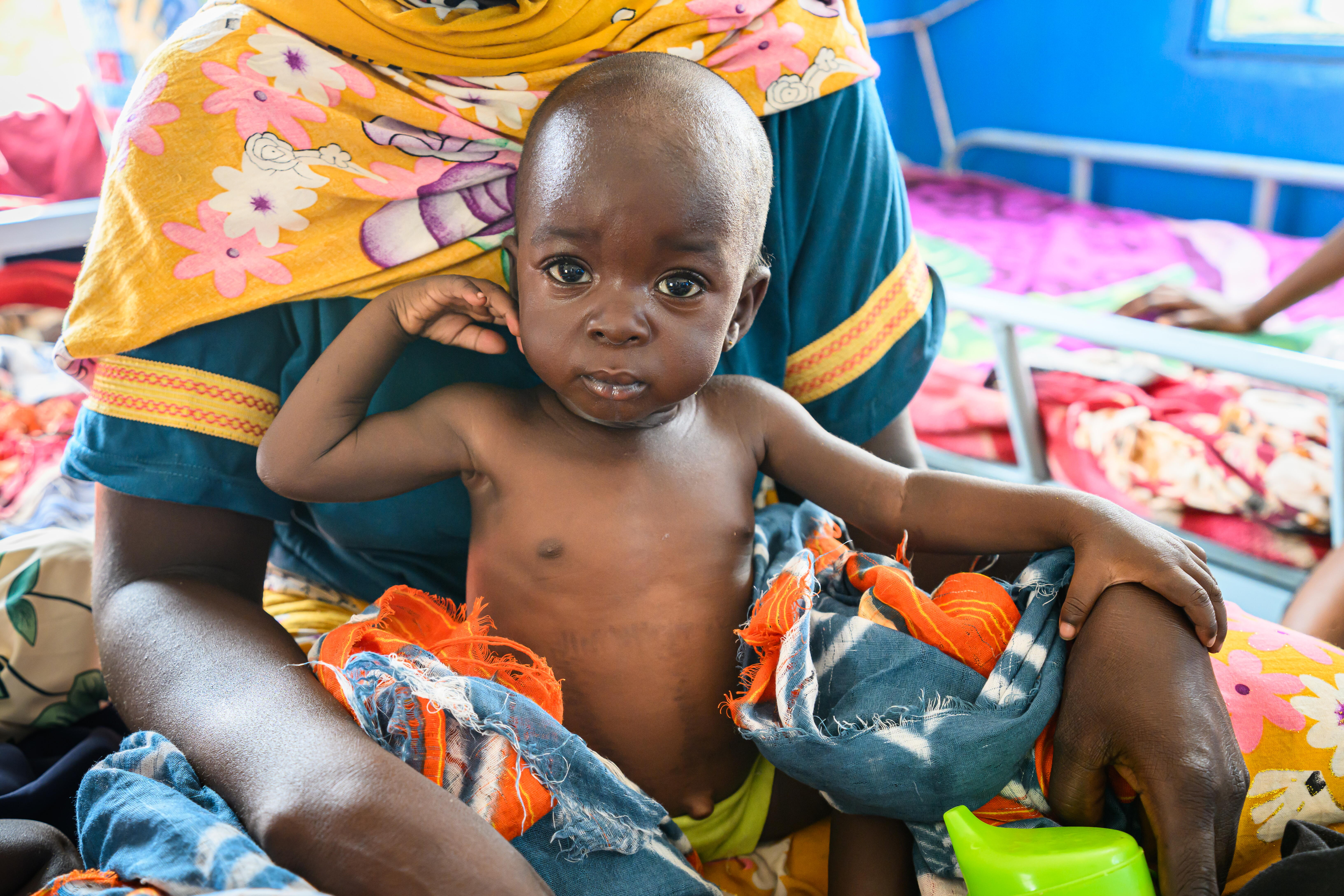
Ikbal came to the center run with her boy, 11-month-old Habiba, who is malnourished. She’s brought her 3-year-old daughter, Habsa as well. The family came from El Geneina on July 10, 2023. “We were attacked by the militia. They killed my father. I lost my aunt. Then I came running,” she says. Ikbal carried Habsa on her back. She was pregnant with Habiba. “We passed by dead corpses on the road. It took two days. It was the first time I saw a bad thing like this.” Now Habiba has stopped eating. He weighs only 6 kilograms—13 pounds.
Dr. Albachir Mahamat Albachir is concerned about the influx of refugees. “I want the world to know that when you come here, you can see the problem,” he says.
He says things are getting worse. “There are many new cases because there are new refugees. We are expecting 50,000 new refugees,” he says. “Now we have 20,000." “I am afraid for two reasons," he says.
1 - The number is increasing. Every day we have a new patient with malnutrition. Our capacity will be challenged because the number of staff is limited.
2 - Electricity. None. Every day we have a child who needs oxygen. But with no electricity, we can’t give them oxygen. The busy hospital has just one ambulance.
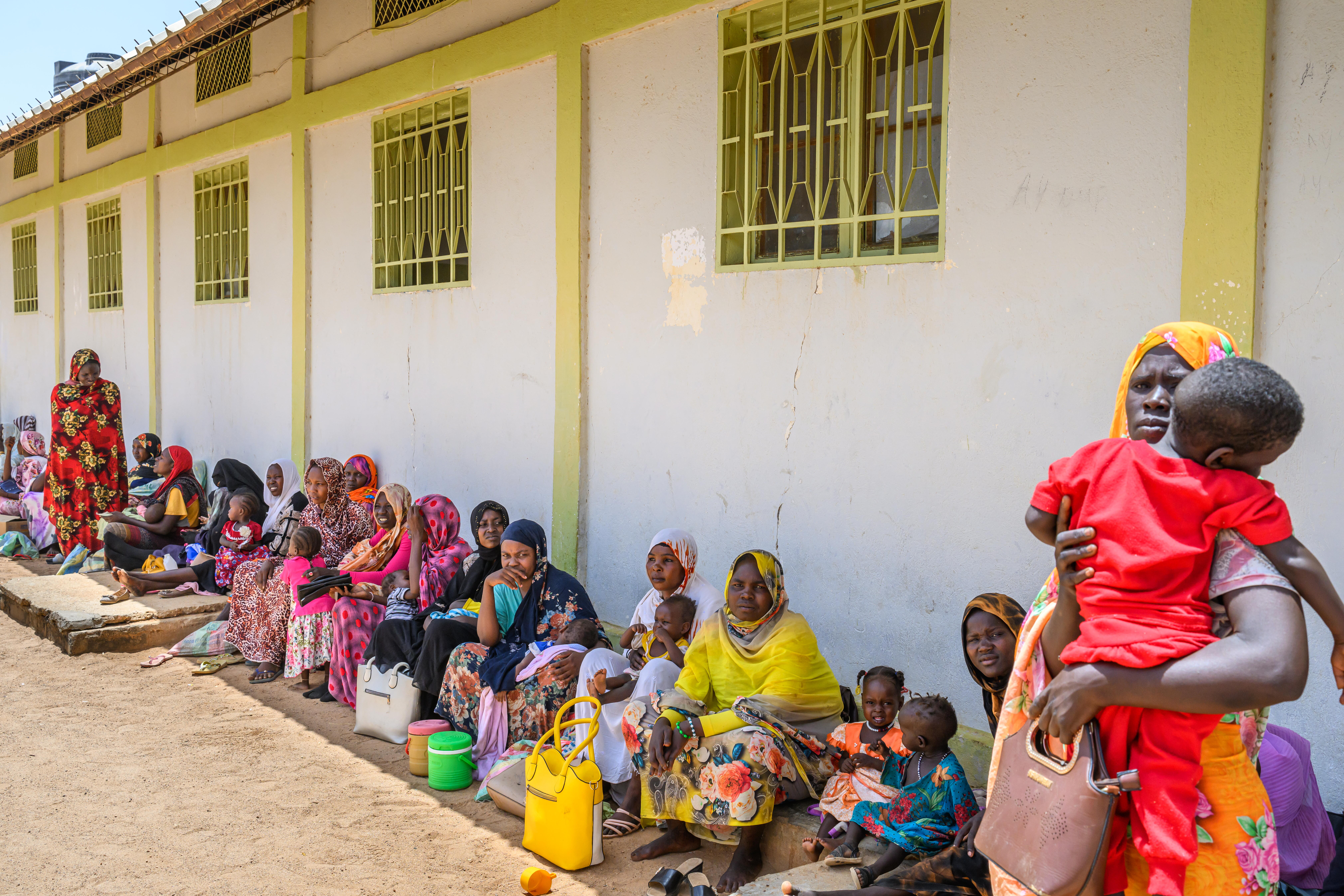
Sudanese refugee women wait to have their children seen outside the nutrition center. In humanitarian responses partnership is key to ensuring the most people are helped. It requires unity across local organisations and the international NGO community.
On a recent check-in to the nutrition centre the team were shocked as they were led to two little boys — the twins. Their miraculous transformation was so extreme they were unrecognisable.
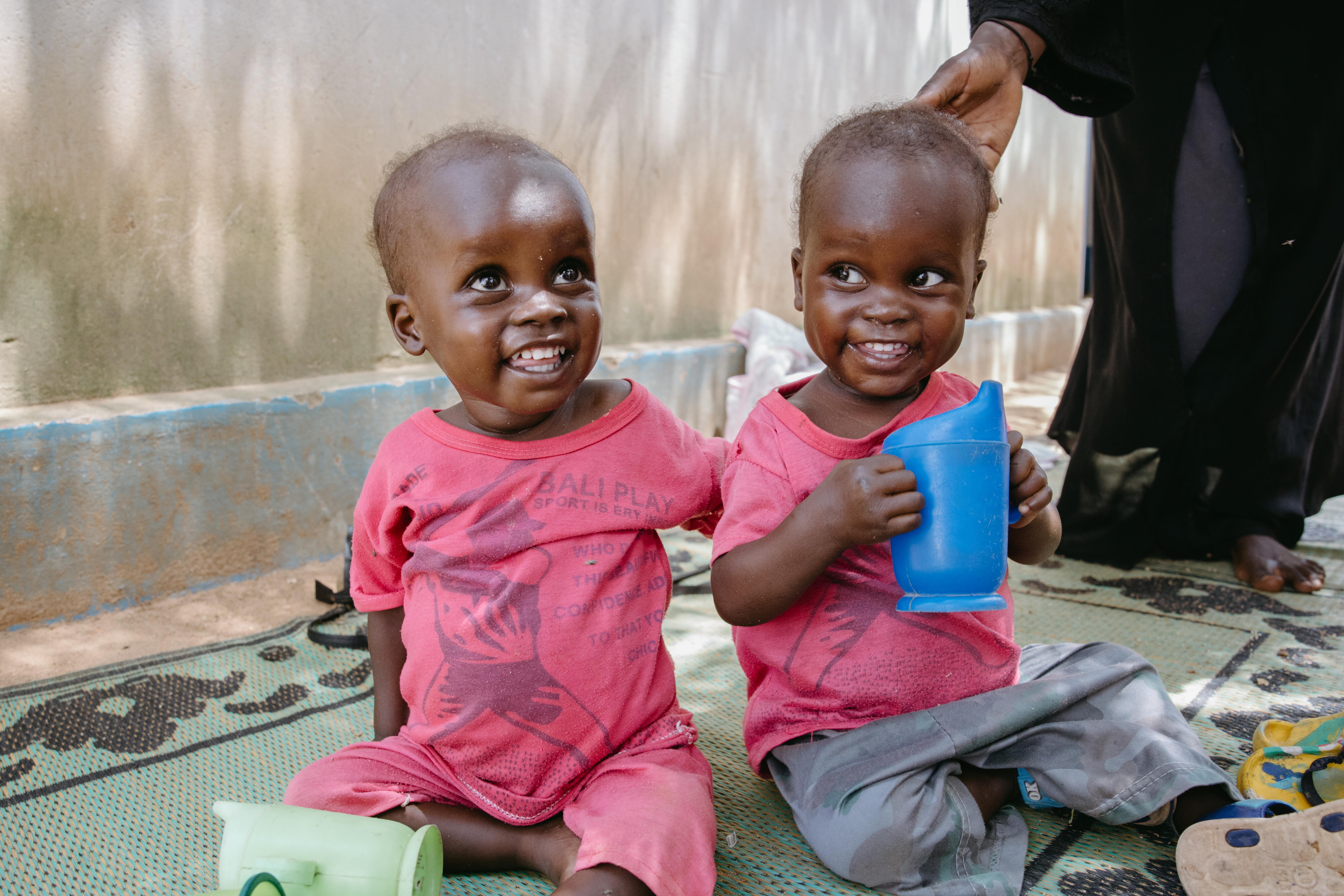
Two gorgeous miracle boys who now play, smile, eat (therapeutic foods) and are growing.
To ensure the miracles continue, our team are currently helping to expand the clinic’s capacity. We're grateful to partner with the centre by adding a water system and electricity to support the ongoing treatment of malnutrition.
Small gifts help make miracles happen!
With the sheer size of the world's crises, it's easy to think 'My gift is too small to make a difference! '
A reasonable thought that simply, is not true. Take the twins for example...
Their survival came down to a few things, yes, a nutrition centre and staff but one of the most crucial things was really very small — therapeutic food. Therapeutic food comes in small packets or like in the boys' case, special fortified milk. These are specially designed energy rich foods specifically to help children survive and recover from severe malnutrition.
It doesn't cost a lot, but it can change everything.
Your gift makes a difference and helps children in the world's most complex and remote places survive, recover and one day, build a future.
